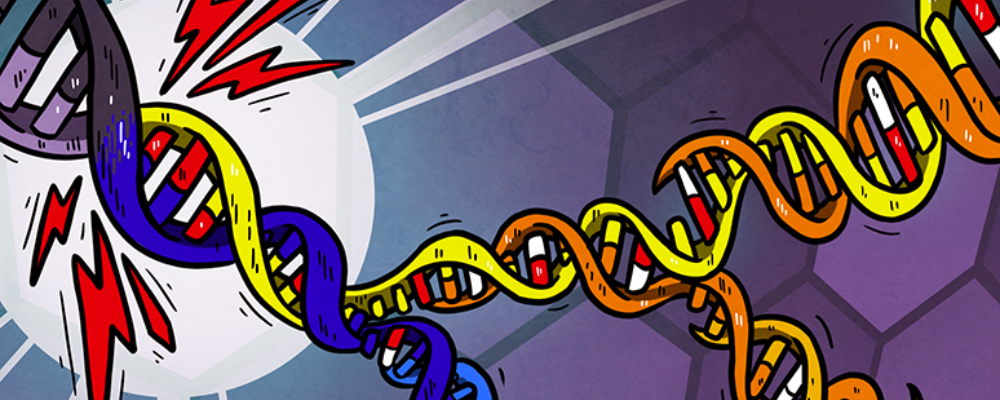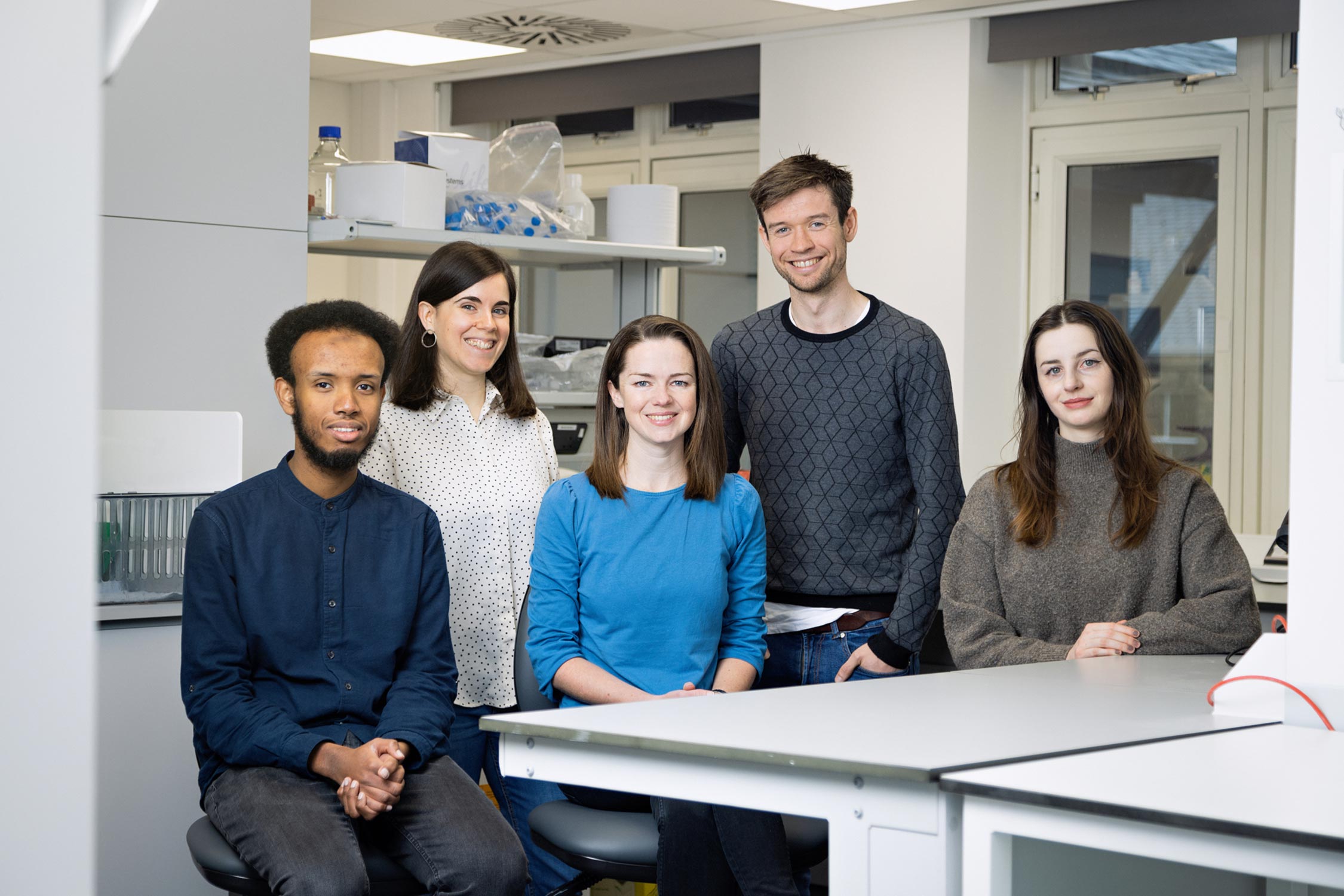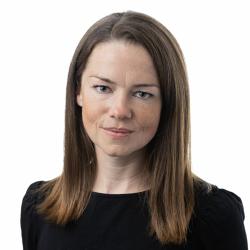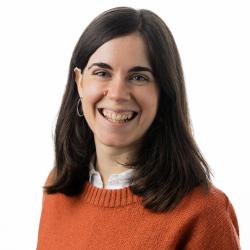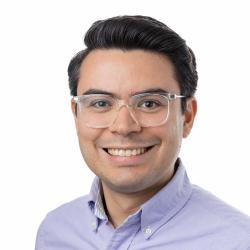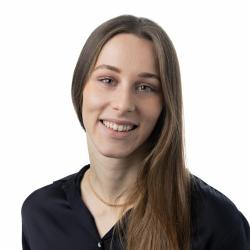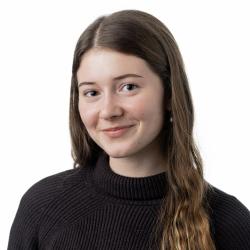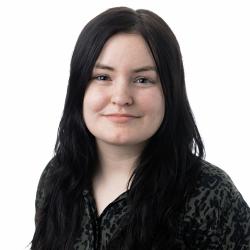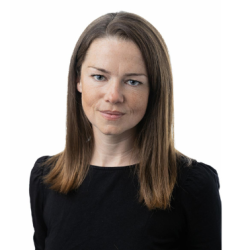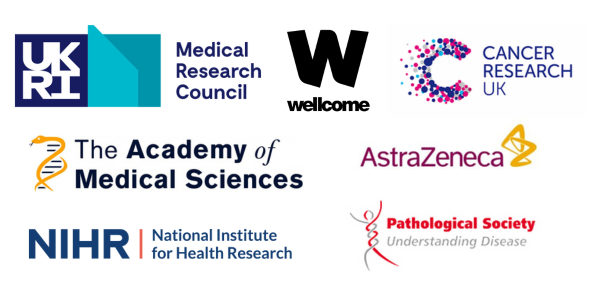Image credit: Petra Korlevic
Molecular consequences of DNA damage and dysregulation
Dr. Sarah Aitken
We are investigating how DNA, cells, and tissues are damaged by the world around us, causing diseases including cancer.
Human cells endure a lifetime of exposure to endogenous and exogenous toxicants. For example, the gastrointestinal tract, including the liver, is exposed to a vast array of dietary metabolites, drugs, and other xenobiotics, as well as commensal and pathogenic organisms. These tissues are prone to accumulate damage due to their role in absorption and detoxification, which can cause mutations in both normal and diseased tissues (Brunner et al., 2019; Ng et al., 2021).
We recently discovered that some DNA lesions (damaged bases) segregate unrepaired into daughter cells for multiple generations, thereby generating combinatorial genetic diversity (Aitken et al., 2020). Lesion segregation is a ubiquitous feature of DNA-damaging agents and has important implications for tumour evolution. We have since leveraged this discovery to learn more about how strand-asymmetric processes, such as replication and transcription, shape DNA damage and repair (Anderson et al., 2022).
The overall aim of our interdisciplinary research group is to investigate mechanisms of cellular damage, and to understand their consequences for human health and disease. We use experimental and computational approaches to study genomic, cellular, and tissue-level responses to environmental and drug-induced insults. By exploiting genomics and pathomics techniques, we study normal and diseased cells and tissues to identify molecular mechanisms which are dysregulated in disease, including cancer.
Key publications
Ginno PA, Borgers H, Ernst C, Schneider A, Behm M, Aitken SJ, Taylor MS and Odom DT. Single-mitosis dissection of acute and chronic DNA mutagenesis and repair. Nature Genetics; https://doi.org/10.1038/s41588-024-01712-y (2024).
Anderson CJ, Talman L, Luft J, Nicholson MD, Connelly J, Pich O, Campbell S, Sundaram V, Connor F, Ginno PA, Liver Cancer Evolution Consortium, López-Bigas N, Flicek P, Semple CA, Odom DT*, Aitken SJ* and Taylor MS*. Strand-resolved mutagenicity of DNA damage and repair. bioRxiv, doi.org/10.1101/2022.06.10.495644 (2022)
Ng SWK, Rouhani FJ, Brunner SF, Brzozowska N, Aitken SJ, Yang M, Abascal F, Moore L, Nikitopoulou E, Chappell L, Leongamornlert D, Ivovic A, Robinson P, Butler T, Sanders MA, Williams N, Coorens THH, Teague J, Raine K, Butler AP, Hooks Y, Wilson B, Birtchnell N, Naylor H, Davies SE, Stratton MR, Martincorena I, Rahbari R, Frezza C, Hoare M and Campbell PJ. Convergent somatic mutations in metabolism genes in chronic liver disease. Nature; 598:473-478. (2021)
Aitken SJ, Anderson CJ, Connor F, Pich O, Sundaram V, Feig C, Rayner TF, Lukk M, Aitken S, Luft J, Kentepozidou E, Arnedo-Pac C, Beentjes SV, Davies SE, Drews SM, Ewing A, Kaiser VB, Khamseh A, López-Arribillaga E, Redmond AM, Santoyo-Lopez J, Sentís I, Talmane L, Yates AD, Liver Cancer Evolution Consortium, Semple CA, López-Bigas N, Flicek P, Odom DT and Taylor MS. Pervasive lesion segregation shapes cancer genome evolution. Nature; 583:265-270. (2020)
Brunner SF, Roberts ND, Wylie LA, Moore L, Aitken SJ, Davies SE, Sanders M, Ellis P, Alder C, Hooks Y, Abascal F, Stratton MR, Martincorena I, Hoare M and Campbell PJ. Somatic mutations and clonal dynamics in healthy and cirrhotic human liver. Nature; 574:538-542. (2019)
Aitken SJ**, Ibarra-Soria X**, Kentepozidou E, Flicek P, Feig C, Marioni JC and Odom DT. CTCF maintains regulatory homeostasis of cancer pathways. Genome Biology;19:106. (2018)
*corresponding authors; **contributed equally.


